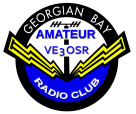2024-01-19, 13:02:13
(2024-01-16, 11:29:19)Adam_VE3FP Wrote: Just a comment on the idea to practice operating in adverse winter conditions. Why?
- Winter means one thing to someone living in northerly climate vs someone in the south, the weather.
- operating from home still sharpens operating skills.
- setting up emergency operating environment can be done without having to drive to "Timbuktu" and freezing just to prove a point.
This can be accomplished from the comfort of your home by simply by setting up your operating conditions as in the field.
eg: Station powered by batteries, generator; Antenna could be anything you would setup in the field.
Radio interface and logging setup and working.
The only difference would be the weather and very likely the set ups will be different in each emergency situation.
Year after year we see the preparedness for ARRL Field Day. We spend first two to four hours dealing with setups.
In my opinion is to get setup Indoors or Outdoors at Home and have fun WFD.
Adverse winter conditions present an entirely new set of challenges. Operating outdoors in winter is entirely different to operating in a nice warm shack. And, it is absolutely unnecessary to get excessively cold doing so. In fact, the whole point of doing a winter exercise is to learn how to overcome those challenges. You simply cannot take the same equipment you would use on a nice warm day in June and expect it to perform exactly the same way in winter. Batteries lose a significant amount of capacity in cold weather, gasoline freezes and radios can fail due to condensation and contraction failure of tiny copper printed circuit traces. Coax cables become very brittle and their connectors can fail. Telescopic antenna poles freeze up and cannot be collapsed after operating. Heavy ice can form on antenna wires and cause them to break.
All these challenges can be overcome with the right techniques. For example, there is a way to pass a radio through the dew point without risk of condensation causing problems when it is powered up; there is a way to avoid coax failure etc. Hams who engage in SOTA are experts at this; for example W0RW operates above 12,000 feet in Colorado - despite the weather. OH8STN operates outdoors above the Arctic Circle in northern Finland. A couple of ex-GBARC members here in Owen Sound thrive on operating overnight in tents and caves in the depths of winter.
I have some experience in winter ops myself, starting in 1999 in Resolute Bay, Nunavut where, as communications consultant for an Arctic expedition, I used commercial satellite radio equipment to send messages to the expedition team in their base in Oslo, Norway. I had to do that outside in order to get a signal from the satellite. Later, the expedition leader operated from his destination location even further north in Canada's Arctic. He and his team and their boat were deliberately frozen into a bay for a whole year. To send reports to the outside world he had to hike 1km up a hill to his radio hut, often in 24-hour darkness and carrying a rifle in case of polar bear encounters. Inside the hut he had to warm his radio equipment for an hour (it doesn't work at -43 degC) before he could use it. HF radio works differently in the Arctic so there are special techniques to maintain links. Satellite comms are difficult because the geostationary satellites are barely above the horizon.
Winter radio operation down at our latitude is a little easier but still requires a lot of care and special techniques to be successful. Last winter I snowshoed into Hibou hauling my radio gear on a sled to do a POTA activation. The snow was 2 feet deep on the beach where I setup my antenna. That is when I learned that it is not an easy task to adjust the length of a counterpoise if you have to trudge through deep snow to do so (I use a different technique now). But I did develop some ways to stay tolerably warm while operating outdoors. Through similar exercises while operating Polar Bear QRP Ops events I developed techniques to protect equipment from falling snow and keep paddle contacts from shorting and erratic performance due to cold.
I understand you are mainly interested in contesting Adam, but please don't dismiss winter outdoor operations as simply a question of moving all your gear outdoors; it is much more complex than that and requires a lot of practice. I still learn something new every time I do it. And, by the way, it is fun for me and many other hams who enjoy it.
The picture shows my antenna setup on the beach at Hibou Conservation Area in Owen Sound.
John VA3KOT
Blog: HamRadioOutsideTheBox.ca
Blog: HamRadioOutsideTheBox.ca



